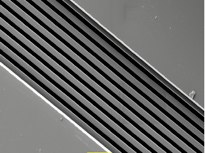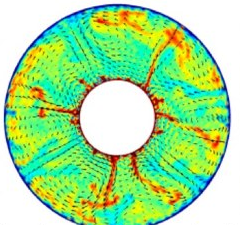

Learn and be able to apply fundamental fluid mechanical principles and equations to solve engineering problems; understand the basic theory; develop problem-solving skills and intuitions for correct applications of fluid mechanics principles in engineering. Topics include external flows, boundary layers, conservations of mass and momentum, Navier-Stokes equations, similitude, fluid metering, fluid friction, and pipe networks. Prerequisites: MATH 209 and MEC E 230 and 250.
Mechanisms of heat transfer, steady and unsteady heat conduction, thermal radiation, free and forced convection, and heat transfer with change of phase and mass transfer. Prerequisites: MEC E 230, CH E 243.
Introduction to modes of heat transfer. One dimensional heat conduction. Heat transfer from surfaces. Introduction to fluid mechanics. Fluid properties. Fluid statics. Use of control volumes. Internal flows. Prerequisites: MATH 101, EN PH 131.
Kinematics of fluid motion, fundamental fluid equations and concepts, laminar boundary layers, potential flow, stability and transition, introduction to turbulence.
Graduate Microfluidics (2013, 2014) & Undergraduate Numerical Methods, Mec E 390 (2016, 2017, 2018)

Micro/Nano-fluidics

Numerical Simulation
Nanofluidics, Microfluidics, Wetting, Drop Impact, Fluid Mechanics, and Porous Media Flow
© 2023 Peichun Amy Tsai.
Designed by GetTemplates.co